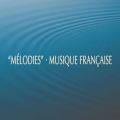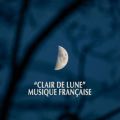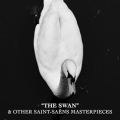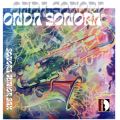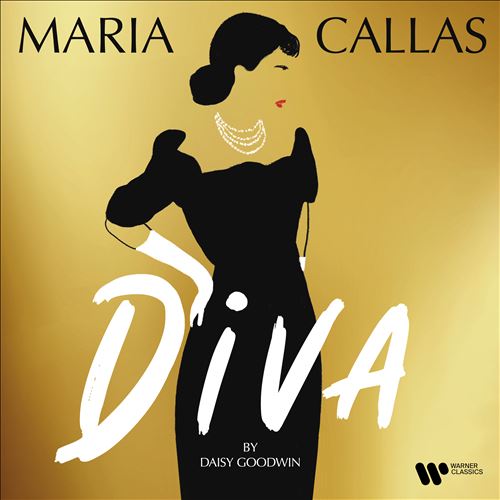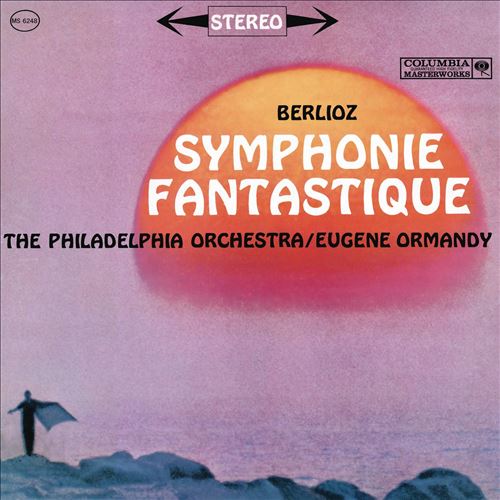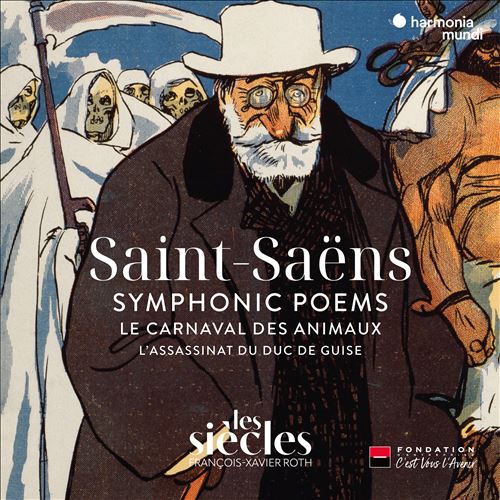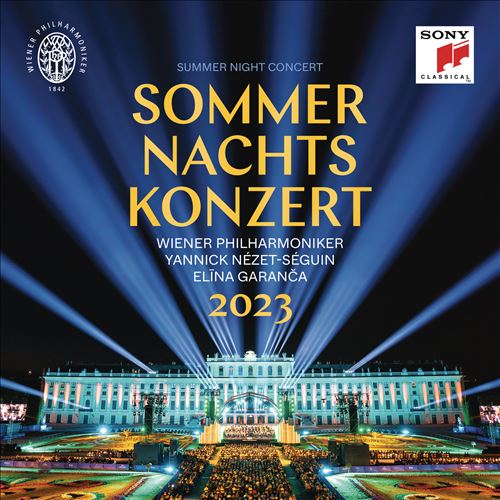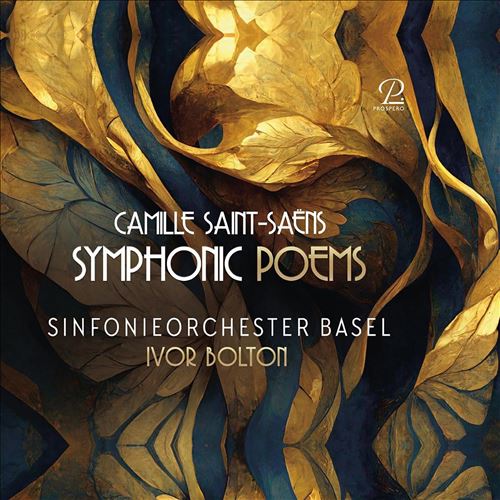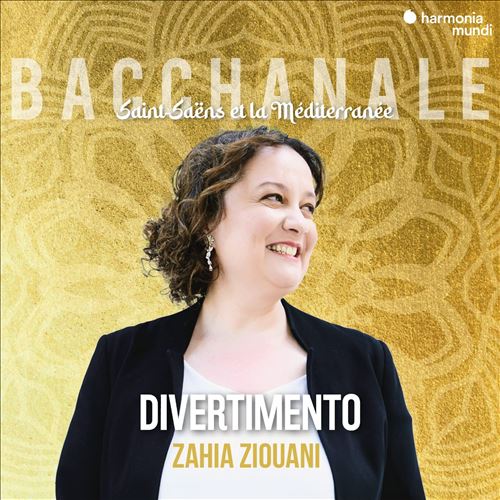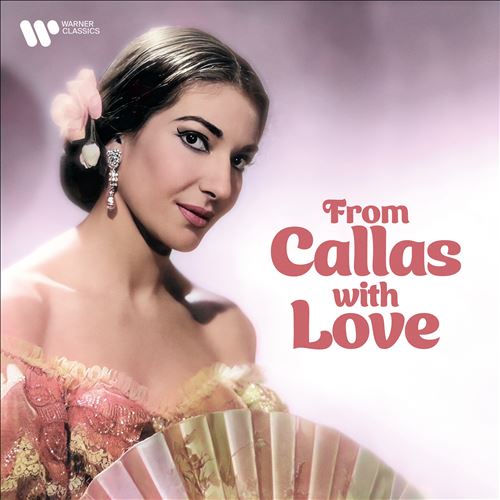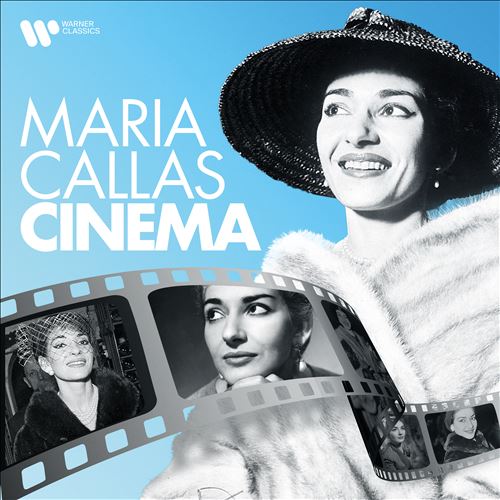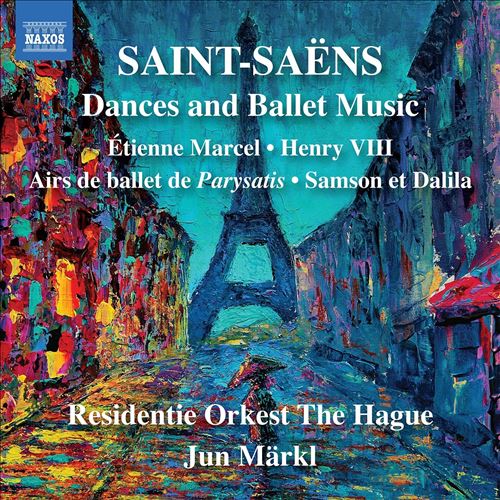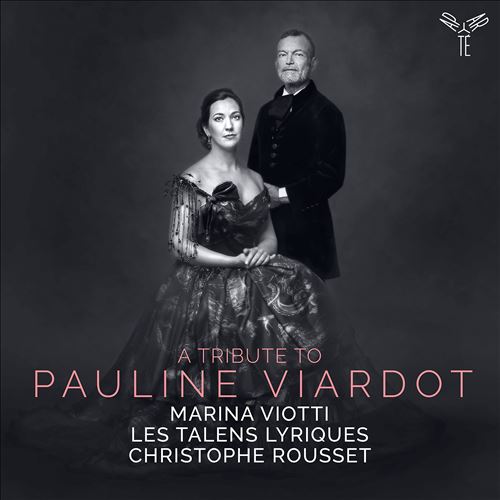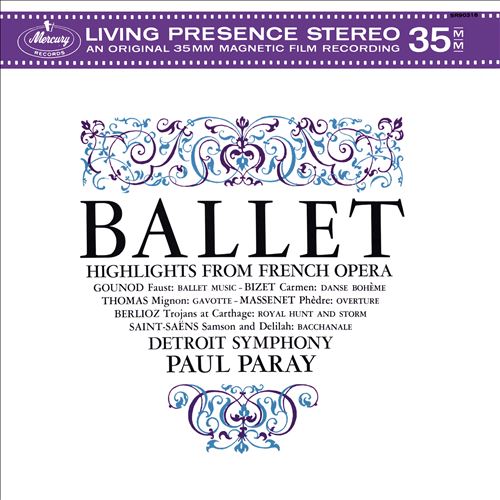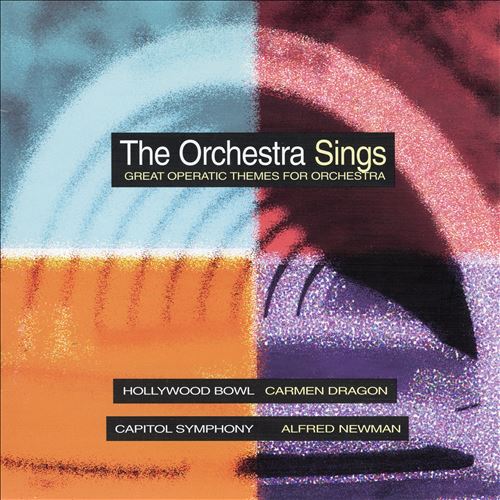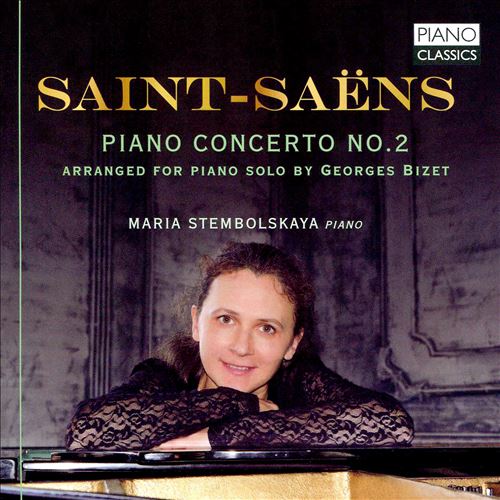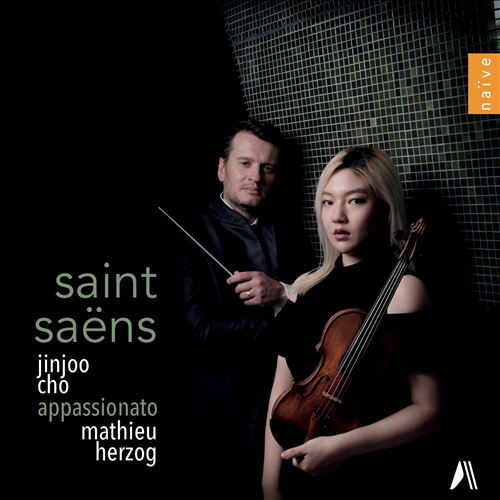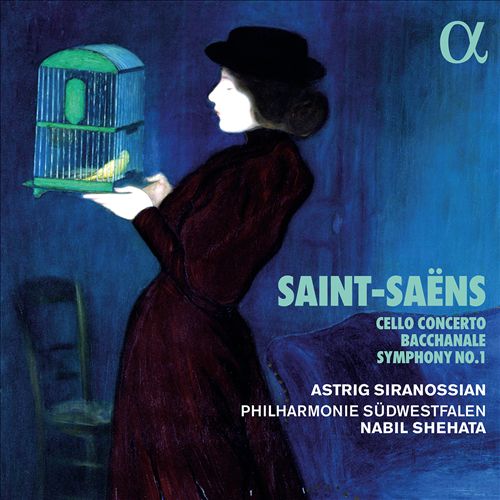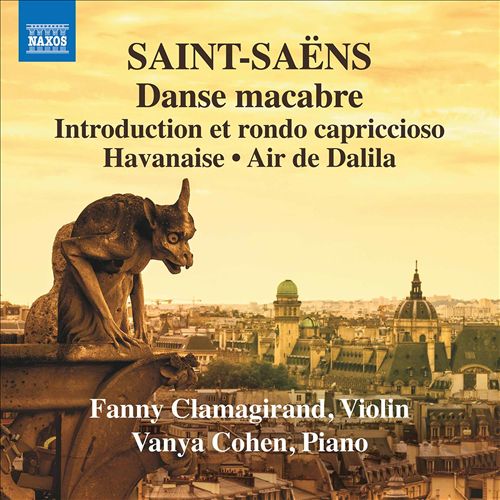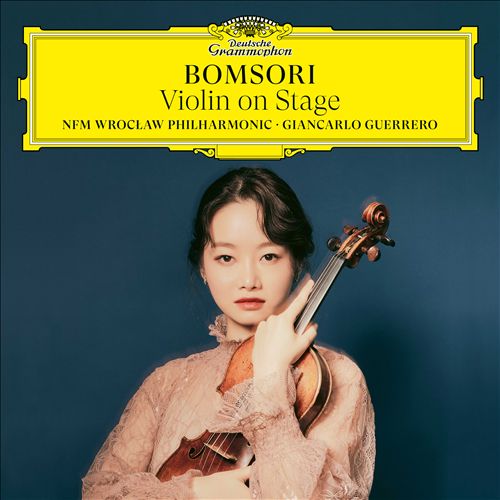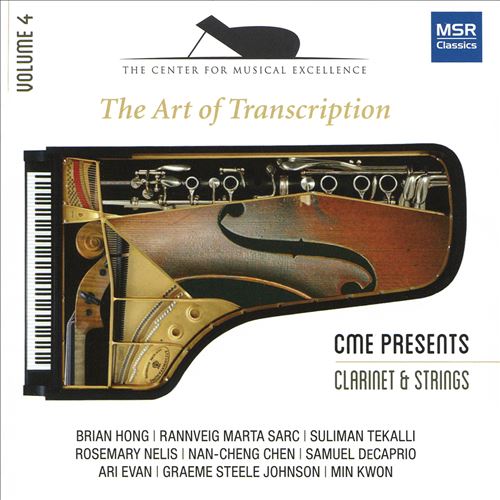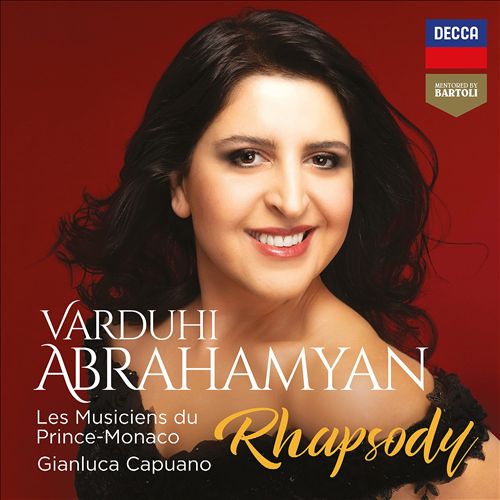Camille Saint-Saëns (카미유 생상스)
Samson et Dalila
100
10,000
1,400
WORK INFO
작곡가: Camille Saint-Saëns (카미유 생상스)작곡년도: 1859 - 1877평균연주: 110:05악장1Act 1 : No. 1, Dieu d'Israël!8:022Act 1 : No. 2, Arrêtez, ô mes frères3:493Act 1 : No. 3, Qui donc élève ici la voix?3:284Act 1 : No. 4, Que vois-je!2:445Act 1 : No. 5, Maudite à jamais2:296Act 1 : No. 6, Hymne de joie5:257Act 1 : No. 7, Je viens célébrer la victoire3:278Act 1 : No. 8, Danse des prêtresses de Dagon2:209Act 1 : No. 9, Printemps qui commence5:1410Act 2 : No. 10, Prélude2:0411Act 2 : No. 11a, Samson, recherchant4:1912Act 2 : No. 11b, Amour! viens aider ma faiblesse!4:0613Act 2 : No. 12a, J'ai gravi la montagne6:2114Act 2 : No. 12b, La victoire facile6:2215Act 2 : No. 13a, En ces lieux, malgré moi8:3016Act 2 : No. 13b, Mon coeur s'ouvre à ta voix5:1717Act 3 : No. 14, Voix ma misère7:5318Act 3 : No. 15, L'aube qui blanchit2:5619Act 3 : No. 16, Bacchanale7:0120Act 3 : No. 17, Gloire à Dagon vainqueur7:14Samson and Delilah (), Op. 47, is a grand opera in three acts and four scenes by Camille Saint-Saëns to a French libretto by Ferdinand Lemaire. It was first performed in Weimar at the Grossherzogliches (Grand Ducal) Theater (now the Staatskapelle Weimar) on 2 December 1877 in a German translation. The opera is based on the Biblical tale of Samson and Delilah found in Chapter 16 of the Book of Judges in the Old Testament. It is the only opera by Saint-Saëns that is regularly performed. The second act love scene in Delilah's tent is one of the set pieces that define French opera. Two of Delilah's arias are particularly well known: "Printemps qui commence" and "Mon cœur s'ouvre à ta voix" ("My heart opens itself to your voice", also known as "Softly awakes my heart"), the latter of which is one of the most popular recital pieces in the mezzo-soprano/contralto repertoire.
In the middle of the 19th century, a revival of interest in choral music swept France, and Saint-Saëns, an admirer of the oratorios of Handel and Mendelssohn, made plans to compose an oratorio on the subject of Samson and Delilah as suggested by Voltaire's libretto Samson for Rameau. The composer began work on the theme in 1867, just two years after completing his first (and as then yet unperformed) opera, Le timbre d'argent. Saint-Saëns had approached Ferdinand Lemaire, the husband of one of his wife's cousins, about writing a libretto for the oratorio but Lemaire convinced the composer that the story was better suited to an opera.From WIKIPEDIA
RELEASED ALBUMS
-
Mélodies: Musique FrançaiseMay 16, 2025
-
Clair de Lune: Musique FrançaiseApril 15, 2025
-
Bacchanale: Saint-Saëns MasterpiecesApril 14, 2025
-
"The Swan" & Other Saint-Saëns MasterpiecesMarch 31, 2025
-
Onda sonoraJanuary 3, 2025
-
Angels & DemonsNovember 15, 2024
-
MerciOctober 25, 2024
-
Saint-Saëns: Softly Awakes My HeartOctober 4, 2024
-
Saint-Saëns: Samson et Dalila - BacchanaleSeptember 20, 2024
-
Diva by Daisy GoodwinJanuary 19, 2024
-
Berlioz: Symphonie Fantastique; Saint-Saens: Bacchanale; Dukas: L'Apprenti SorcierDecember 8, 2023
-
Saint-Sa챘ns: Symphonic Poems; Le Carnaval des Animaux; L'Assassinat du Duc de GuiseNovember 17, 2023
-
Sommernachtskonzert 2023June 30, 2023
-
Camille Saint-Saëns: Symphonic PoemsMay 19, 2023
-
Bacchanale: Saint-Saëns et la MéditerranéeMay 19, 2023
-
From Callas with LoveFebruary 14, 2023
-
CinemaDecember 9, 2022
-
Saint-Saëns: Dances and Ballet MusicNovember 11, 2022
-
A Tribute to Pauline ViardotNovember 4, 2022
-
Ballet Highlights from French Opera [Paul Paray: The Mercury Masters II, Vol. 20]June 17, 2022
-
The Orchestra Sings: Great Operatic Themes for OrchestraMay 6, 2022
-
Saint-Saëns: Piano Concerto No. 2February 4, 2022
-
Saint-SaënsNovember 19, 2021
-
Saint-Saëns: Cello Concerto; Bacchanale; Symphony No. 1October 8, 2021
-
Saint-Saëns: Danse macbare; Introduction et rondo capriccioso; Havanaise; Air de DalilaSeptember 10, 2021
-
Beyond the Music: The Complete RCA Victor RecordingsAugust 27, 2021
-
Violin on StageJuly 30, 2021
-
The Art of TranscriptionJune 11, 2021
-
RhapsodyJune 4, 2021
-
Marvellous Mezzo-Soprano and Contralto: Best Loved Opera AriasApril 23, 2021
FEATURED MOVIES
-
 04:49생상스: 삼손과 델릴라 BacchanaleMay 11, 2013AASPA Spring Concert in Michigan Theater
04:49생상스: 삼손과 델릴라 BacchanaleMay 11, 2013AASPA Spring Concert in Michigan Theater -
 08:21생상스: 삼손과 델릴라 Bacchanale23/10/2010Sala Simon Bolivar, CASPM
08:21생상스: 삼손과 델릴라 Bacchanale23/10/2010Sala Simon Bolivar, CASPM -
 07:58생상스: 삼손과 델릴라 BacchanaleMay 2012
07:58생상스: 삼손과 델릴라 BacchanaleMay 2012 -
 05:23생상스: 삼손과 델릴라 Mon coeur s'ouvre a ta voixAugust 31, 2011
05:23생상스: 삼손과 델릴라 Mon coeur s'ouvre a ta voixAugust 31, 2011 -
 05:24생상스: 삼손과 델릴라 Printemps qui commence26.10.2013Polish National Opera
05:24생상스: 삼손과 델릴라 Printemps qui commence26.10.2013Polish National Opera -
 07:56생상스: 삼손과 델릴라 BacchanaleNazarene Bible College, Colorado
07:56생상스: 삼손과 델릴라 BacchanaleNazarene Bible College, Colorado -
 05:51생상스: 삼손과 델릴라 Mon coeur s'ouvre a ta voix2007Opera-Gala en Baden-Baden
05:51생상스: 삼손과 델릴라 Mon coeur s'ouvre a ta voix2007Opera-Gala en Baden-Baden -
 05:31생상스: 삼손과 델릴라 Bacchanale06/02/2014Le Petit Trianon
05:31생상스: 삼손과 델릴라 Bacchanale06/02/2014Le Petit Trianon -
 04:27생상스: 삼손과 델릴라 Amour! viens aider ma faiblesse!August 3, 2012Collegiate Church of Guerande
04:27생상스: 삼손과 델릴라 Amour! viens aider ma faiblesse!August 3, 2012Collegiate Church of Guerande -
 05:32생상스: 삼손과 델릴라 Mon coeur souvre a ta voix
05:32생상스: 삼손과 델릴라 Mon coeur souvre a ta voix -
 07:46생상스: 삼손과 델릴라 BacchanaleMay 2013
07:46생상스: 삼손과 델릴라 BacchanaleMay 2013 -
 06:53생상스: 삼손과 델릴라 Bacchanale
06:53생상스: 삼손과 델릴라 Bacchanale -
 05:01생상스: 삼손과 델릴라 Bacchanale11.13.2010
05:01생상스: 삼손과 델릴라 Bacchanale11.13.2010 -
 06:18생상스: 삼손과 델릴라 Mon coeur s'ouvre a ta voix2004Belgrad
06:18생상스: 삼손과 델릴라 Mon coeur s'ouvre a ta voix2004Belgrad -
 06:22생상스: 삼손과 델릴라 Mon coeur s'ouvre a ta voixOctober 14, 2007Salikh Saydashev Great Concert Hall, Kazan, Tatarstan, Russia
06:22생상스: 삼손과 델릴라 Mon coeur s'ouvre a ta voixOctober 14, 2007Salikh Saydashev Great Concert Hall, Kazan, Tatarstan, Russia
ALBUM MUSIC
WORKS SHOUTS


